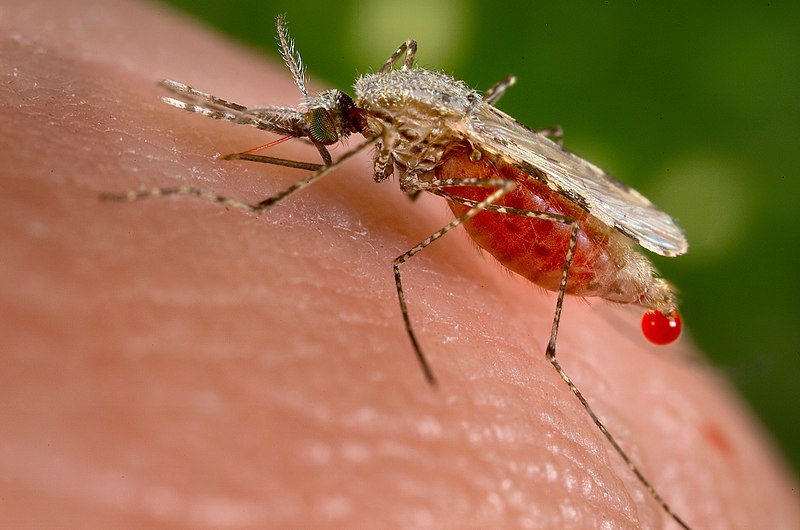
dengue pronunciation: Dengue fever, a viral infection transmitted by mosquitoes, exhibits a spectrum of severity, from mild to potentially life-threatening. Recognizing the telltale signs of dengue fever is paramount for timely medical intervention and averting complications. Here, we delve into the 7 warning signs of dengue fever:
7 warning signs of dengue fever
- Elevated Fever: The onset of dengue fever often manifests as a sudden and soaring fever. Temperatures can spike as high as 104°F (40°C), persisting for several days.This couse is one of the 7 warning signs of dengue fever
- Intense Headaches: A severe headache is a hallmark of dengue fever, frequently reaching debilitating levels. This type of headache is often described as akin to having one’s bones crushed or experiencing excruciating eye socket pain.This couse is one of the 7 warning signs of dengue fever
- Muscle and Joint Agony: Dengue fever is colloquially referred to as “breakbone fever” due to the excruciating joint and muscle pain it inflicts. This pain can be profound, affecting multiple areas of the body.This couse is one of the 7 warning signs of dengue fever
- Skin Rash: Some individuals grappling with dengue fever may develop a rash a few days after the fever sets in. Typically, this rash comprises small, itchy, red spots.This couse is one of the 7 warning signs of dengue fever
- Bleeding Tendencies: Dengue fever can result in various bleeding symptoms, including nosebleeds, gum bleeding, or a propensity for easy bruising. In severe cases, it can culminate in substantial bleeding, such as gastrointestinal hemorrhages or heavy menstrual bleeding.This couse is one of the 7 warning signs of dengue fever
- Persistent Vomiting: Persistent and recurrent vomiting is another significant indicator of dengue fever. This can lead to dehydration, exacerbating the overall condition.This couse is one of the 7 warning signs of dengue fever
- Abdominal Distress: In certain instances, dengue fever can cause severe abdominal pain, which may be misinterpreted as symptoms of other abdominal ailments. This abdominal distress is frequently accompanied by ongoing vomiting.This couse is one of the 7 warning signs of dengue fever
It is imperative to recognize that dengue fever can escalate into a severe and potentially life-threatening form known as dengue hemorrhagic fever (DHF) or dengue shock syndrome (DSS). Warning signs for these advanced stages encompass:
- Severe Abdominal Pain
- Rapid Respiratory Rate
- Cold or Clammy Skin
- Overwhelming Fatigue
- Restlessness or Irritability
- Bleeding from the Nose or Gums
- Continued Vomiting with Blood
- Sudden Drop in Blood Pressure
In the presence of these severe symptoms, immediate medical attention is paramount, as they could signal the onset of DHF or DSS, necessitating prompt and specialized medical care.

Dengue fever is prevalent in numerous tropical and subtropical regions. Regrettably, there exists no specific antiviral treatment for this malady. Management chiefly revolves around providing supportive care, including ample rest, hydration, and pain alleviation.
Furthermore, the prevention of mosquito bites remains pivotal in mitigating the risk of dengue fever. Employ protective measures such as mosquito nets, repellents, and the use of long-sleeved clothing, particularly in regions where the disease is prevalent. Your proactive actions can significantly contribute to safeguarding against this mosquito-borne menace.
| Warning Signs of Dengue Fever | Description |
|---|---|
| Elevated Fever | Sudden and high fever, often reaching 104°F (40°C). |
| Intense Headaches | Severe headache, described as bone-crushing or eye socket pain. |
| Muscle and Joint Agony | Intense joint and muscle pain, often termed “breakbone fever.” |
| Skin Rash | Rash with small, itchy, red spots, typically appearing a few days in. |
| Bleeding Tendencies | Nosebleeds, gum bleeding, easy bruising, or more significant bleeding. |
| Persistent Vomiting | Recurrent and ongoing vomiting, leading to dehydration. |
| Abdominal Distress | Severe abdominal pain, sometimes mistaken for other conditions. |
Now, let’s add a Frequently Asked Questions (FAQ) section:
Frequently Asked Questions (FAQ) – Dengue Fever
- What is dengue fever, and how is it transmitted?
- Dengue fever is a viral infection transmitted through the bites of infected Aedes mosquitoes, primarily Aedes aegypti. It is not spread directly from person to person.
- Where is dengue fever prevalent?
- Dengue fever is common in tropical and subtropical regions of the world, including parts of Southeast Asia, the Pacific Islands, the Caribbean, and Central and South America.
- Are there different types or strains of the dengue virus?
- Yes, there are four distinct serotypes of the dengue virus (DENV-1, DENV-2, DENV-3, and DENV-4). Infection with one serotype provides immunity only to that specific serotype, and subsequent infections with different serotypes can increase the risk of severe dengue.
- Is there a specific treatment for dengue fever?
- There is no specific antiviral treatment for dengue fever. Management primarily involves supportive care, such as rest, hydration, and pain relief. In severe cases, hospitalization may be necessary.
- How can I prevent dengue fever?
- Preventing mosquito bites is key to dengue prevention. Use mosquito nets, wear long-sleeved clothing, use mosquito repellents, and eliminate mosquito breeding sites around your home, such as stagnant water containers.
- What are the differences between dengue fever, dengue hemorrhagic fever (DHF), and dengue shock syndrome (DSS)?
- Dengue fever is the milder form of the disease. DHF and DSS are severe forms that can lead to shock and organ failure. Symptoms of DHF and DSS include bleeding, severe abdominal pain, and a drop in blood pressure.
- When should I seek medical attention if I suspect dengue fever?
- If you or someone you know exhibits warning signs of dengue fever, such as high fever, severe headache, or persistent vomiting, seek medical attention promptly. In cases of severe symptoms or signs of DHF/DSS, immediate medical care is crucial.
Remember that early detection and appropriate medical care are vital for managing dengue fever and preventing complications.








